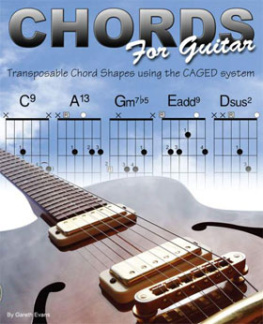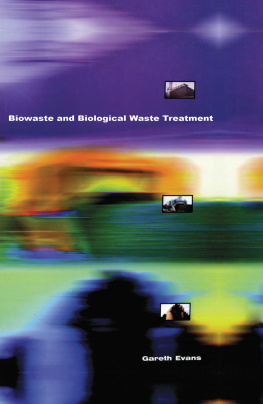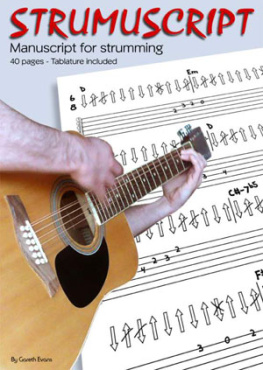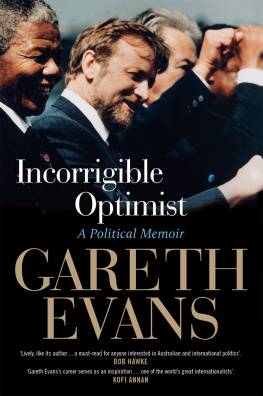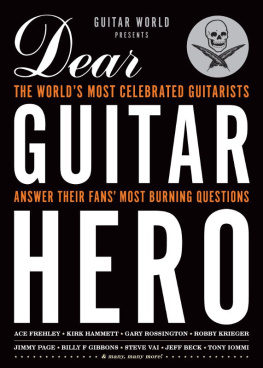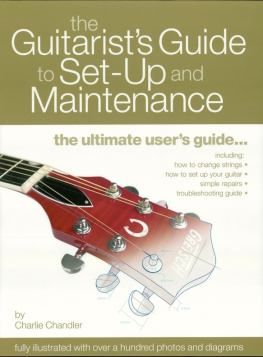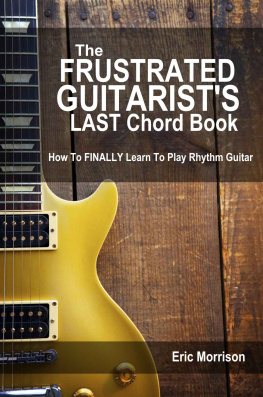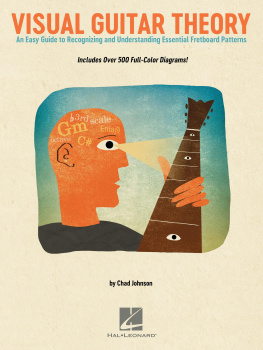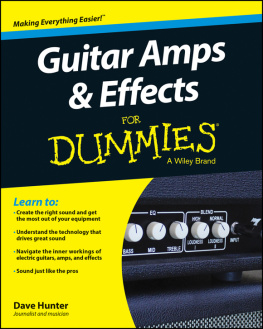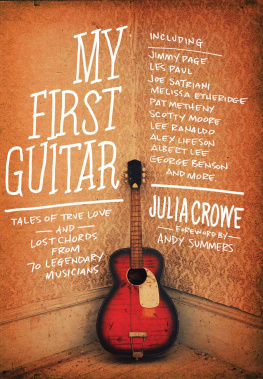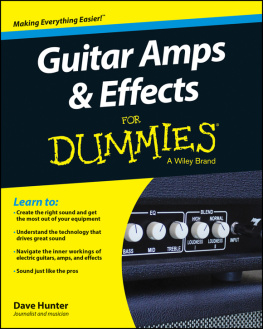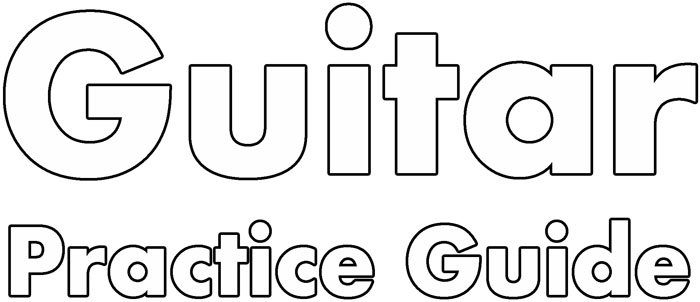
ISBN 978-1-912135-56-1
Written by Gareth Evans
Copyright 2018 by Intuition Publications
www.guitar-book.com
International Copyright Secured. All rights reserved. No part of this publication may be reproduced in any form or by any means without the prior written permission of the publisher
Preface
Welcome to the Practise Guide. This 5,900 word guide is written with the guitar in mind but much of it can apply to musicians in general. It starts with the broader subjects of how long and how often to practise then deals specifically with how to practise and various issues with some guidance on how to deal with them. It isnt written with any particular skill level in mind, it applies to whatever level you are at, while there might be some insights already familiar to more experienced players. Occasional references are made to research papers.
Its not just a case that practise makes perfect as the saying goes, but really more like perfect practise makes perfect. It is at least as much about how you practise as it is about how much you practise, in other words quality as much as quantity. Using a metronome during practise is important and some of this guide is written with using one in mind so if you dont have a metronome and are serious about practise you should get one.
By the way, I have used the spelling of the word practice with a c on the title, cover and description due to how it appears to be the most commonly used spelling of the word, while practise with an s is used inside the book, which is original spelling of the word and is international English

How much Practise?
How much practise you need to do depends on your goals, the greater the goal the more practise needed. Is music a hobby? Perhaps you are more serious and want to be the best you can be? Or maybe you want to do music for your career?
If you are a beginner, you shouldn't be worried by the idea of practising for many hours. Sessions of 30 minutes practise 5 or 6 days per week is fine, any more might be too much at an early stage, although of course, its up to you if you wish to do more. Enthusiasm can grow over time. Many very successful guitarists who practise several hours a day did not necessarily start that way. Determine a realistic amount of time to practise that you can stick to.
Did you know that the more we learn the better we become at learning? The brain generalizes, which means that the better you become at a skill, the easier you pick up similar skills. This ability applies at any age, including into older age. Below is a quote from the Abstract section of a study which looks at this ability in people aged 60 and over (skip ahead to the simple version in the paragraph below you prefer):
Significant improvements in assessments directly related to the training tasks and significant generalization of improvements to non-related standardized neuropsychological measures of memory (effect size of 0.25) were documented in the group using the training program. Memory enhancement appeared to be sustained after a 3-month no-contact follow-up period.
In other words after training the brain, significant improvement occurs in memory function for other unfamiliar tests that were not already trained for,and this improvement endured for at least 3 months.
How Often
Frequent practise for reasonable periods of time is better than infrequent longer practise sessions. For example 30 minutes practise on 4 to 6 days of the week is better than 2 to 3 hours on one day of the week. Similarly if you are more serious and have the time, 2 to 3 hours practise on 4 to 6 days of the week is better than spending all of one day practising. This is known as the spacing effect. The spacing effect is how studying in separate sessions spread out over time gives better results than studying the same amount in a single large session.
The spacing effect probably has a lot to do with sleep. Sleep plays an important role in motor memory consolidation. In other words if you have practised guitar, later on while you sleep, your brain and body adapts to what you practised in order to become better at it. Here is a study. The quote below is from the last line of the Abstract.
The observations demonstrate a critical role of sleep for storing and optimizing motor skills.
Practising only once in a week will mean you only benefit from one period of sleep consolidation. Practising on five or more days of a week however, will give you at least five timesas much sleep consolidation and better results. Therefore, as an example, practising for 20 minutes on six days of the week will give you six times as much sleep consolidation and better results than practising for the same total time (two hours) on one single day of the week.
Consistency is the key. Try to be disciplined. Practising for many hours on one day will not make up for missed practise on other days.
Childrens concentration span tends to be lower than it is for adults. For a child 20 - 30 minutes concentrated practise, every other day, or even most days of the week is fine. Any more is a plus. If they start enjoying themselves it can go on for longer.
Concentration
Concentration is important when practising. This means that you should be doing something that is challenging enough that it requires your concentration. If you play what you already know you aren't going to improve. So always try to give yourself a challenge, not easy but not too hard either. This way you can make constant progress, while in the long run you will be less likely to get frustrated or bored repeating the same things you already know.
Avoid Distractions - Proper practise should be done without distractions. This means you should not be in the same room as a television that is on. No using the internet while you practise (unless it actually has something directly to do with the practise itself).
There are plug-in programs that can be used to block the internet at times you set. A couple of examples would be StayFocusd for Chrome browser, while for Firefox there is Leechblock.
Some of the original guitar legends would not have even had a television when they grew up (certainly not before televisions were commonly available), perhaps a fortunate situation in terms of practise.
Patience
Instant gratification has become more and more a conditioned part of life and in so many ways we dont even consider. For one example, once you would have had to physically go to shops to buy the things you need, whereas nowadays we can order over the internet. In contrast, becoming a proficient musician will take time and practise, just like it always has.
Your own playing should satisfy you to a point that it becomes a positive reinforcement to practising; being patient and having time for what might be called "serious boring stuff" is better than being impatient, doing just the "fun" stuff and your playing not progressing. Rather than just playing around on the guitar with your favourite tunes for 30 minutes, try to spend at least the first 10 minutes doing something like technical exercises and / or scales to a metronome (scales are the foundation behind most music). This way you'll progress faster. Then the fun stuff becomes more fun and you can do different things because you are getting better, rather than reaching a frustrating point where you feel you can't go any further. If you just play for fun youll hit a plateau, you can only get better with conscious deliberate practise.
Next page
